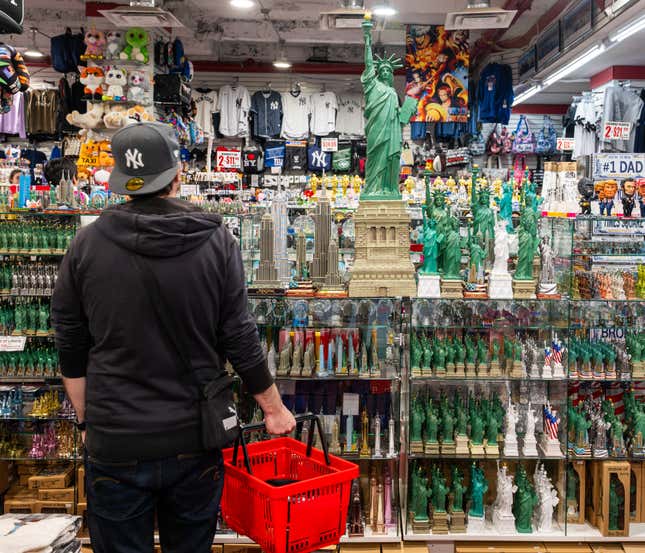
In This Story
President Donald Trump has sounded more hawkish on trade in recent days after previously downplaying his plans for new tariffs set to be announced this week, according to a new report. It comes as Goldman Sachs (GS-1.29%) economists have increased their forecasted odds of a recession over the next 12 months, from 20% up to 35%.
Trump has pushed his team to be more aggressive on tariffs, encouraging advisers to apply a higher rate of duties on a broader set of countries, The Wall Street Journal (NWSA-0.90%) reports. Advisers have considered instituting tariffs of up to 20% on almost all U.S. trading partners.
Trump has pushed to levy import taxes on goods from all countries with which the U.S. has a trade deficit, and the possibility of so-called “reciprocal” tariffs remains on the table, The Journal reports.
It remains unclear whether industry-specific duties will be unveiled with the new tariffs expected to be announced Wednesday.
Goldman’s higher recession forecast “reflects our lower growth baseline, the sharp recent deterioration in household and business confidence, and statements from White House officials indicating greater willingness to tolerate near-term economic weakness in pursuit of their policies,” economists Ronnie Walker, Alec Phillips, and David Mericle wrote in a note to clients.
The economists project the average rate of U.S. tariffs will rise 15 percentage points this year, their previous “risk case” scenario. That may be ultimately whittled down by exclusions to 9 percentage points. They boosted their year-end 2025 core PCE inflation forecast to an annualized 3.5% from 3% — and projected lower GDP growth and higher unemployment than before.
Trump dismissed concerns about higher car prices over the weekend, telling NBC News (CMCSA+0.03%) that he didn’t care it he price of foreign autos went up because it would prompt Americans to buy domestically made cars. U.S. automakers have warned that tariffs would increase the costs of their products, too.
The stock market had a relatively benign reaction to last week’s auto tariffs announcement, which surprised Chris Grisanti, chief market strategist at MAI Capital Management, given that the duties were more hawkish than he’d anticipated. He now expects new duties this Wednesday to also be hawkish, possibly followed by another muted reaction from investors.
“No one has any experience of moving from a free trade world to a protectionist world,” Grisanti said last week, “and we’re sort of making it up as we go along.”